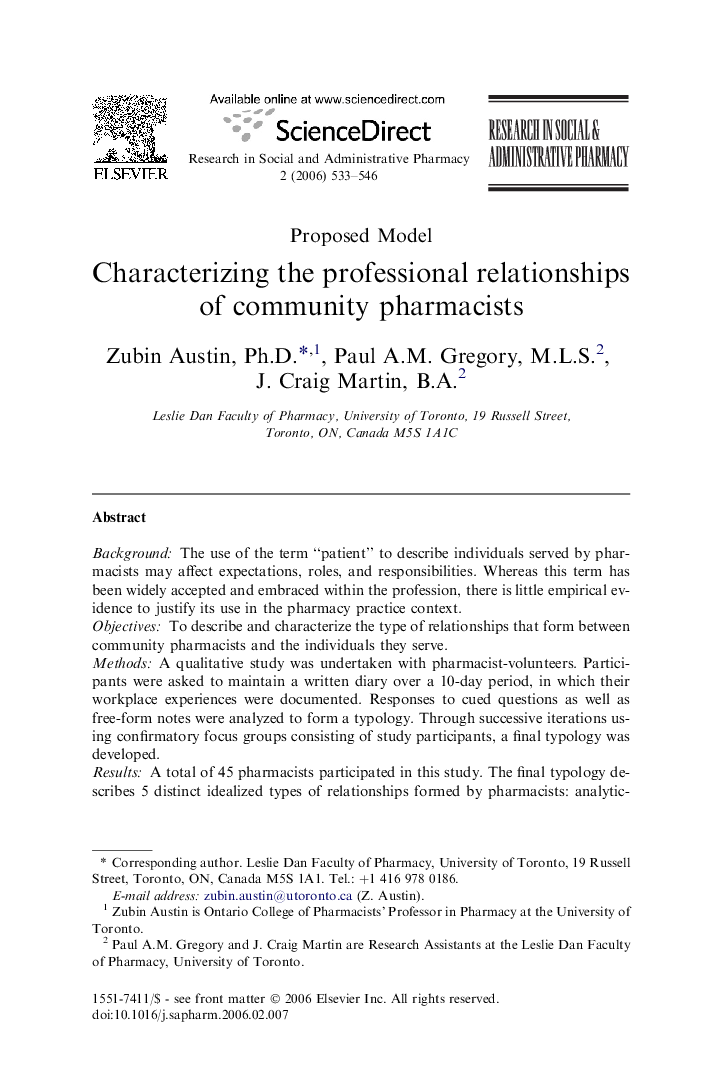| Article ID | Journal | Published Year | Pages | File Type |
|---|---|---|---|---|
| 2509189 | Research in Social and Administrative Pharmacy | 2006 | 14 Pages |
BackgroundThe use of the term “patient” to describe individuals served by pharmacists may affect expectations, roles, and responsibilities. Whereas this term has been widely accepted and embraced within the profession, there is little empirical evidence to justify its use in the pharmacy practice context.ObjectivesTo describe and characterize the type of relationships that form between community pharmacists and the individuals they serve.MethodsA qualitative study was undertaken with pharmacist-volunteers. Participants were asked to maintain a written diary over a 10-day period, in which their workplace experiences were documented. Responses to cued questions as well as free-form notes were analyzed to form a typology. Through successive iterations using confirmatory focus groups consisting of study participants, a final typology was developed.ResultsA total of 45 pharmacists participated in this study. The final typology describes 5 distinct idealized types of relationships formed by pharmacists: analytic-authoritative, emotive-interactive, opportunistic-expedient, reliant-paternalistic, and autonomous-informative.ConclusionsThe complexity of practice suggests that the “patient-pharmacist” paradigm for understanding relationships in pharmacy does not adequately capture the variety of day-to-day interactions that pharmacists encounter. Pharmacists engage in a variety of adaptive and responsive strategies to meet expressed and implicit needs of the individuals they serve.
